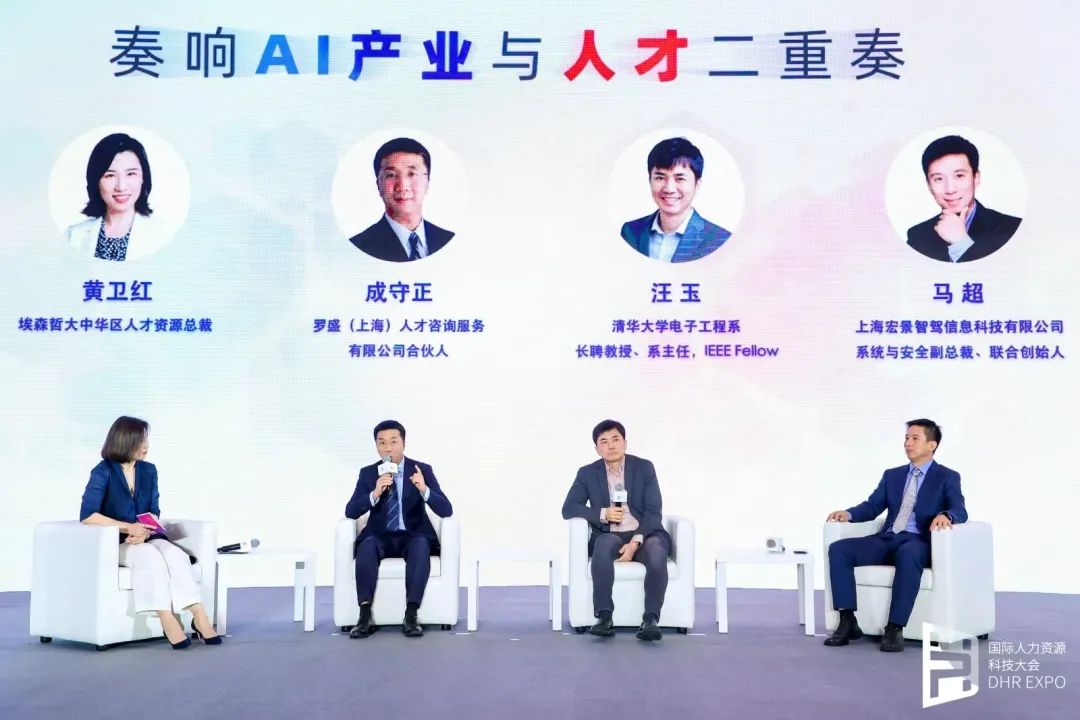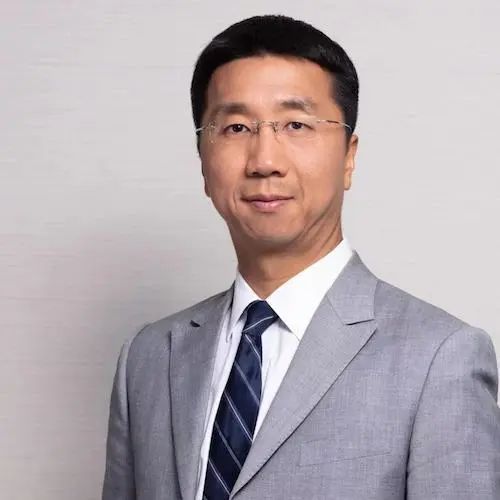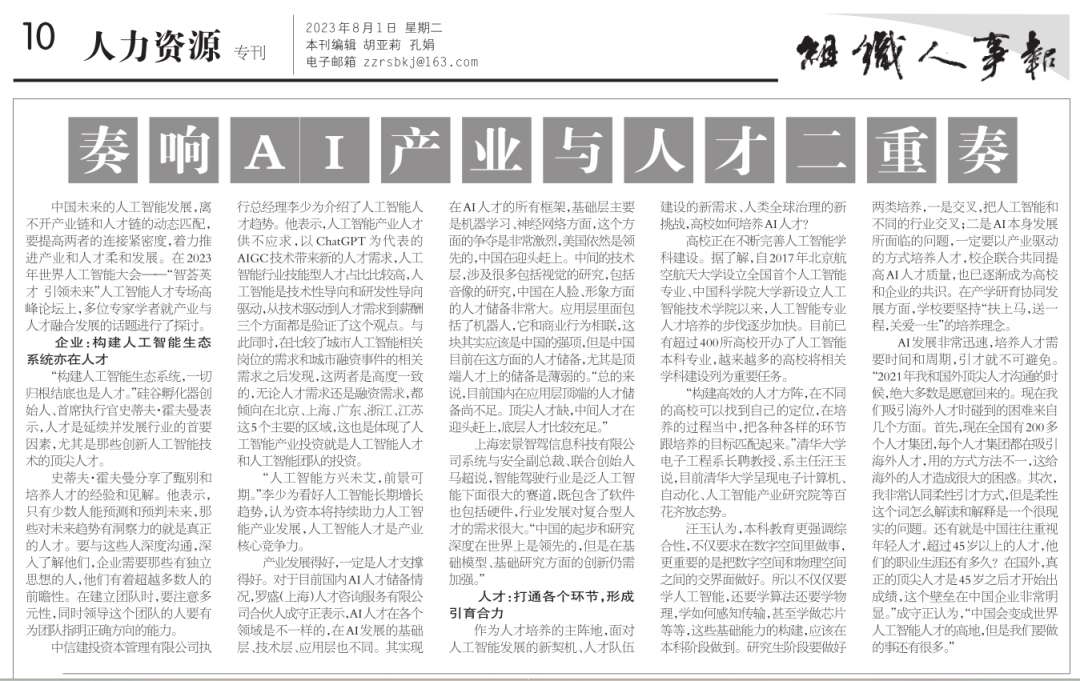Playing the duet of the AI industry and talent
The future development of artificial intelligence(AI) in China must be distinct from the dynamic matching of the industrial chain and the talent chain, and it is necessary to improve the interaction between the two and strive to promote the flexible development of industries and talents. Multiple experts and scholars discussed the integrated development of industries and talents at the 2023 World Artificial Intelligence Conference "Smart Talents, Lead the Future" Artificial Intelligence Talent Special Summit Forum.

Enterprises: Building an AI ecosystem also rely on talents
"Building an AI ecosystem comes down to talents. "Steve Hoffman, founder and CEO of Silicon Valley Incubator, said that talent is the primary factor for the continuation and development of the industries, especially those top talents who innovate AI technology.
Steve Hoffman shared his experience and insights on identifying and training talent. He said that only a few people can forecast and predict the future, and those with insight into future trends are truly talents. It is necessary to communicate deeply with these people and gain a deeper understanding of them, and companies need those who have independent thinking and are forward-looking beyond most people. When building a team, it is important to pay attention to diversity, and the person who leads the team must be able to point the team in the right direction.
Li Shaowei, executive general manager of China Capital Management Co., Ltd., introduced the trend of AI talents. He stated that talents in the AI industry are in short supply, and AIGC technology represented by ChatGPT has brought new talent demand. The proportion of skilled talents in the AI industry is relatively high, and AI is driven by technology, research and development. This viewpoint has been verified from technology-driven, talent demand, and salary. At the same time, after comparing the demand for urban AI-related jobs and the related demand for urban financing events, it is found that the two are highly consistent. Both talent demand and financing demand tend to be in five major regions: Beijing, Shanghai, Guangdong, Zhejiang and Jiangsu. This also reflects that investments in the artificial intelligence industry are investments in AI talents and AI teams.
"Artificial Intelligence is on the rise and has a promising future." Li Shaowei was optimistic about the long-term growth trend of AI and believed that capital will continue to help the development of the AI industry, and AI talents are the industry's core competitiveness.
"If the industry develops well, it must be well supported by talents." For the current domestic AI talent reserves, Cheng Shouzheng, partner of Russell Reynolds Associates Co., Ltd., said that AI talents are different in various fields, and the basic, technical, and application layers of AI development are also different. All the frameworks for AI talents now, the base layer is mainly machine learning and neural networks, and the competition in this area is very fierce. The United States is still leading, and China is catching up. The technical layer in the middle involves a lot of visual research, including audiovisual research, and China has a very large talent reserve in face and image. The application layer includes robots, which are linked to business behaviour. This should be China's strength, but China's talent reserves in this area, especially those of top talents, are weak. " In general, the talent reserves at the top of the application layer in China is still insufficient. The top talents are lacking, the middle talents are catching up, and the bottom talents are abundant."
Ma Chao, vice president of system and safety and co-founder of Shanghai Hongjing Drive Co., Ltd., said that the intelligent drive industry is a big track under generalised AI, which includes both software and hardware, and the development of the industry has a great demand for compound talents. "China's start and research depth is leading in the world, but innovation in basic models and basic research still needs to be strengthened."
Talents: Connect all links, form a collaborative force of guidance and training
As the main position of talent training, in the face of new opportunities for the development of AI, new needs for talent team construction, and new challenges of human global governance, how do universities train AI talents?
Universities are constantly improving the construction of AI disciplines. It is understood that since Beihang University set up the country's first AI major and the University of Chinese Academy of Sciences set up the School of Artificial Intelligence in 2017, the pace of AI professional talent training has gradually accelerated. More than 400 universities have opened AI undergraduate majors, and more and more universities have listed the construction of related disciplines as an important task.
"To build an efficient talents team, different colleges and universities can find their positioning and match various links with the training goals in the training process." Wang Yu, a tenured professor and director of the Department of Electronic Engineering of Tsinghua University, said that Tsinghua University is currently showing a blossoming trend of electronic computers, automation and AI industry research institutes.
Wang Yu believed that undergraduate education emphasises comprehensiveness, which not only requires doing things in the digital space but, more importantly, does a good job at the interface between the digital and physical spaces. Therefore, it is important to learn not only AI but also algorithms, physics, how to perceive transmission, and even make chips, etc. The construction of these basic capabilities should be done in the undergraduate stage. In the postgraduate stage, two kinds of training should be done well. First, cross AI and different industries; The second is the problem faced by the development of AI itself, it is necessary to train talents in an industry-driven way, and the school-enterprise joint effort to improve the quality of AI talents has gradually become the consensus of universities and enterprises. In terms of the coordinated development of industry, university, research and education, colleges and universities should adhere to the training concept of "give them a leg up, always care about them".
The development of AI is very rapid, and training talents requires time and cycles, making talent introduction inevitable. "When I communicated with top talents abroad in 2021, the vast majority were willing to return. The difficulties we face in attracting overseas talents now come from several aspects: first of all, there are now more than 200 talent groups in the country, and each talent group is attracting overseas talents in different ways, which causes great confusion to overseas talents. Secondly, I strongly agree with the flexible approach to attractingtalent, but how to interpret and explain the word ‘flexible’ is a very realistic problem. Also, China tends to value young talents over 45 years old; how much time do they have in their career? In foreign countries, The real top talent starts to make achievements after the age of 45; this barrier is very obvious in Chinese enterprises." Cheng Shouzheng believed that "China will become a highland for artificial intelligence talents in the world, but there is still a lot we need to do."
Alumnus Introduction

Cheng Shouzheng, the alumnus of the Business School of USST, partner of Russell Reynolds Associates Co., Ltd.

Source: ZUZHI RENSHI BAO, 1st August, 2023
Translated by: Bai Yuting
Reviewed by: Wang Yaopeng


